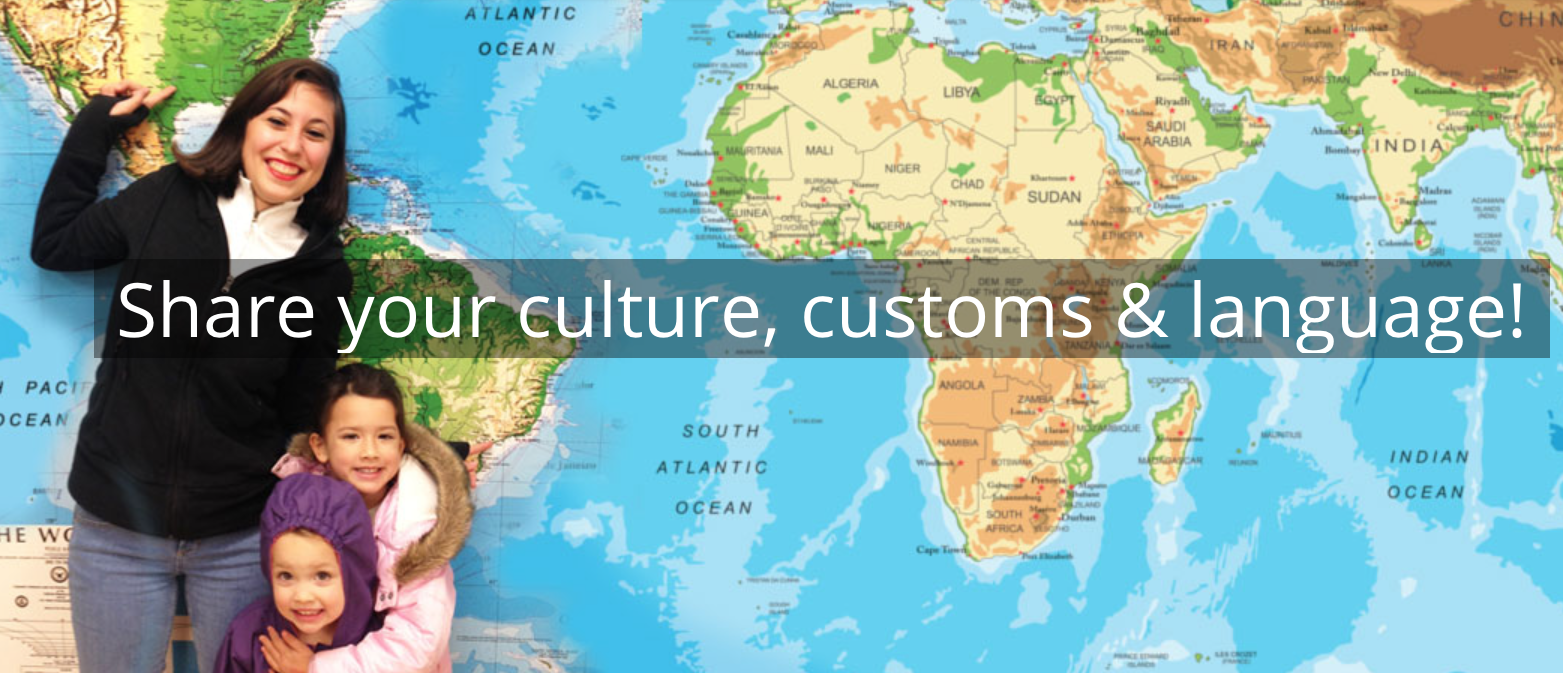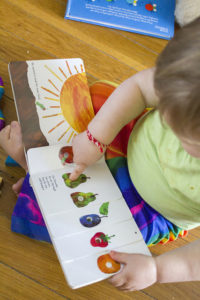What is Global Awareness?
The Global Awareness program brings expanded educational and cultural opportunities to the forefront for au pairs. It gives them the opportunity to share their culture with others.

How do au pairs get involved?
Au Pairs can volunteer in pre-school, elementary and middle school classrooms. They have the opportunity to share their culture, customs and language with young American children. The mission of this volunteer experience is to bring multi-cultural understanding into the classrooms and help children form positive first impressions of people from other countries. Visit the Get Involved page of our website for all the info you need to get started.
Is Global Awareness just for schools?
No. Au pairs have done presentations for scout groups, at birthday parties and at children’s story times.
Are you interested in scheduling a Global Awareness presentation?
Teachers, parents or others who would like to schedule a presentation, please visit the Global Awareness website for more information and a contact link.
How can Global Awareness help host parents?
Global Awareness offers a webinar series for host parents. The goal is to increase their cultural awareness, improve communication with their au pair and ensure the most successful exchange possible. Your community counselor can provide you with the webinar schedule and how to register.

 Being an au pair is an important role in a child’s life. When you are caring for a young child up to 45 hours per week, there are lots of opportunities to help them learn language. Many host parents are eager for their children to be exposed to foreign language. If this is true of your host parents, you can try the suggestions below, in both English and your native language.
Being an au pair is an important role in a child’s life. When you are caring for a young child up to 45 hours per week, there are lots of opportunities to help them learn language. Many host parents are eager for their children to be exposed to foreign language. If this is true of your host parents, you can try the suggestions below, in both English and your native language.